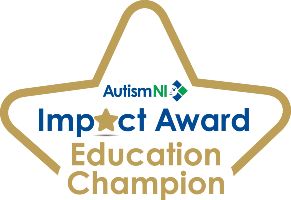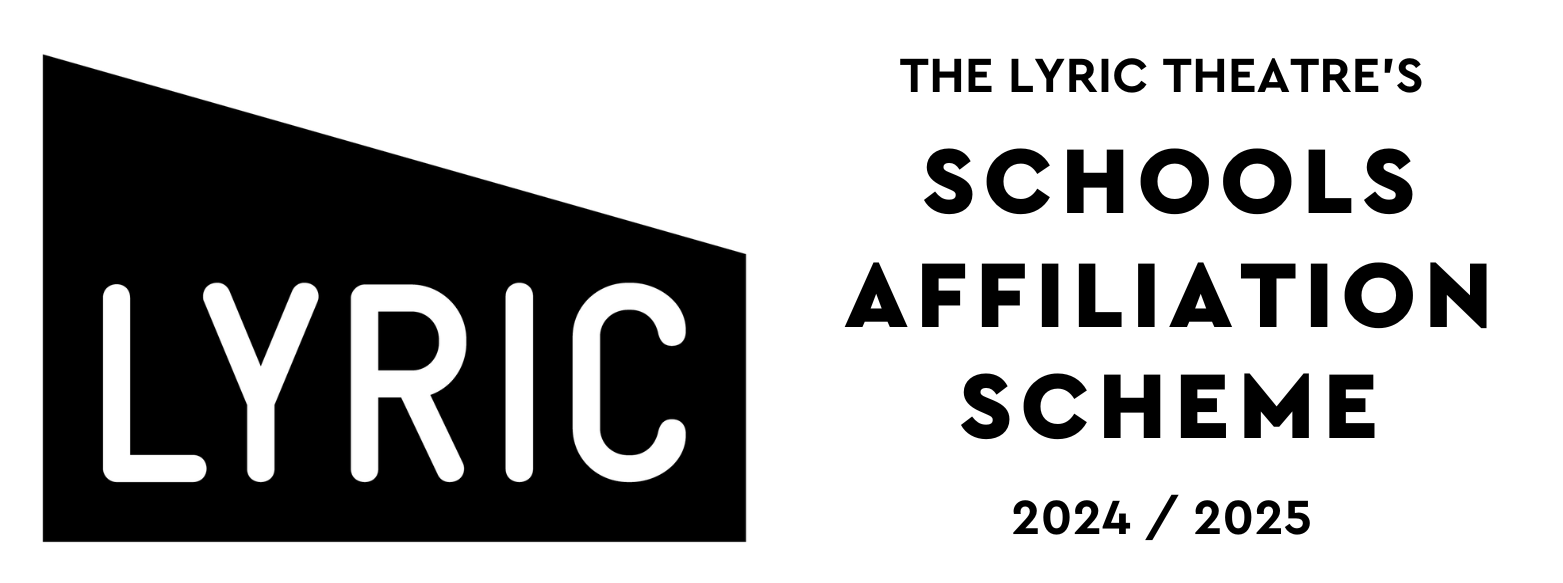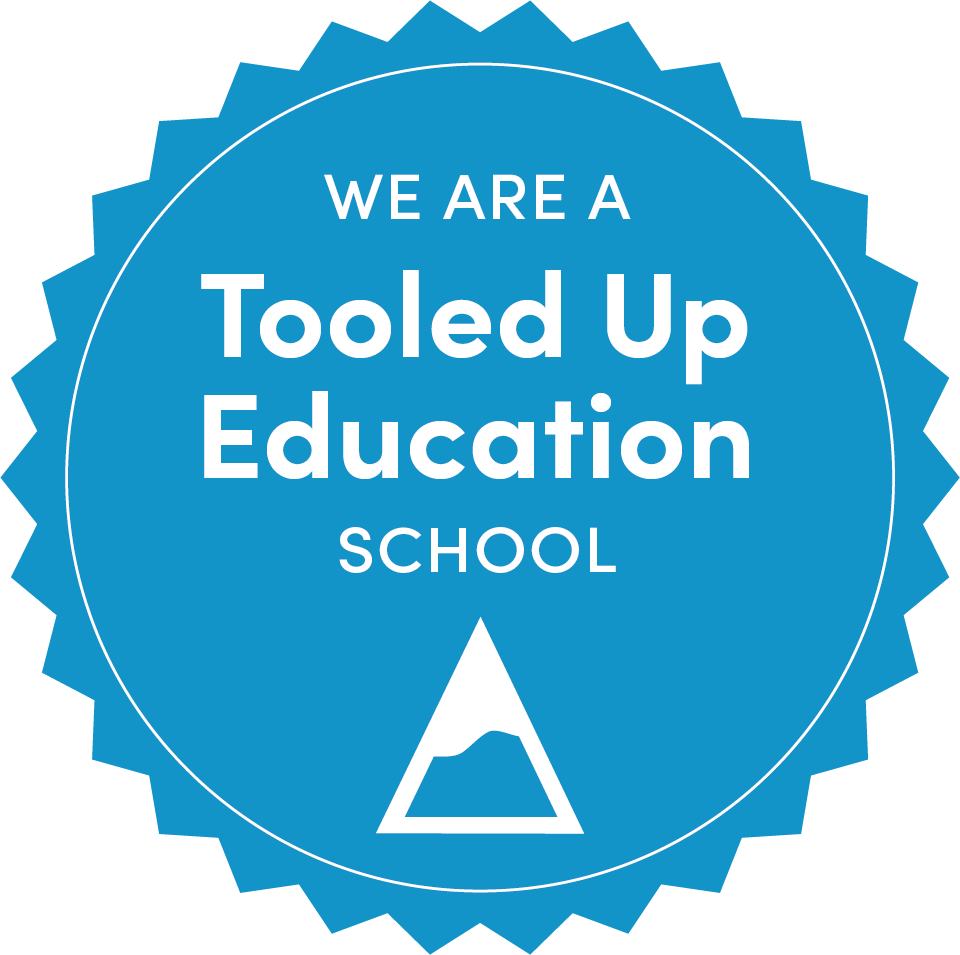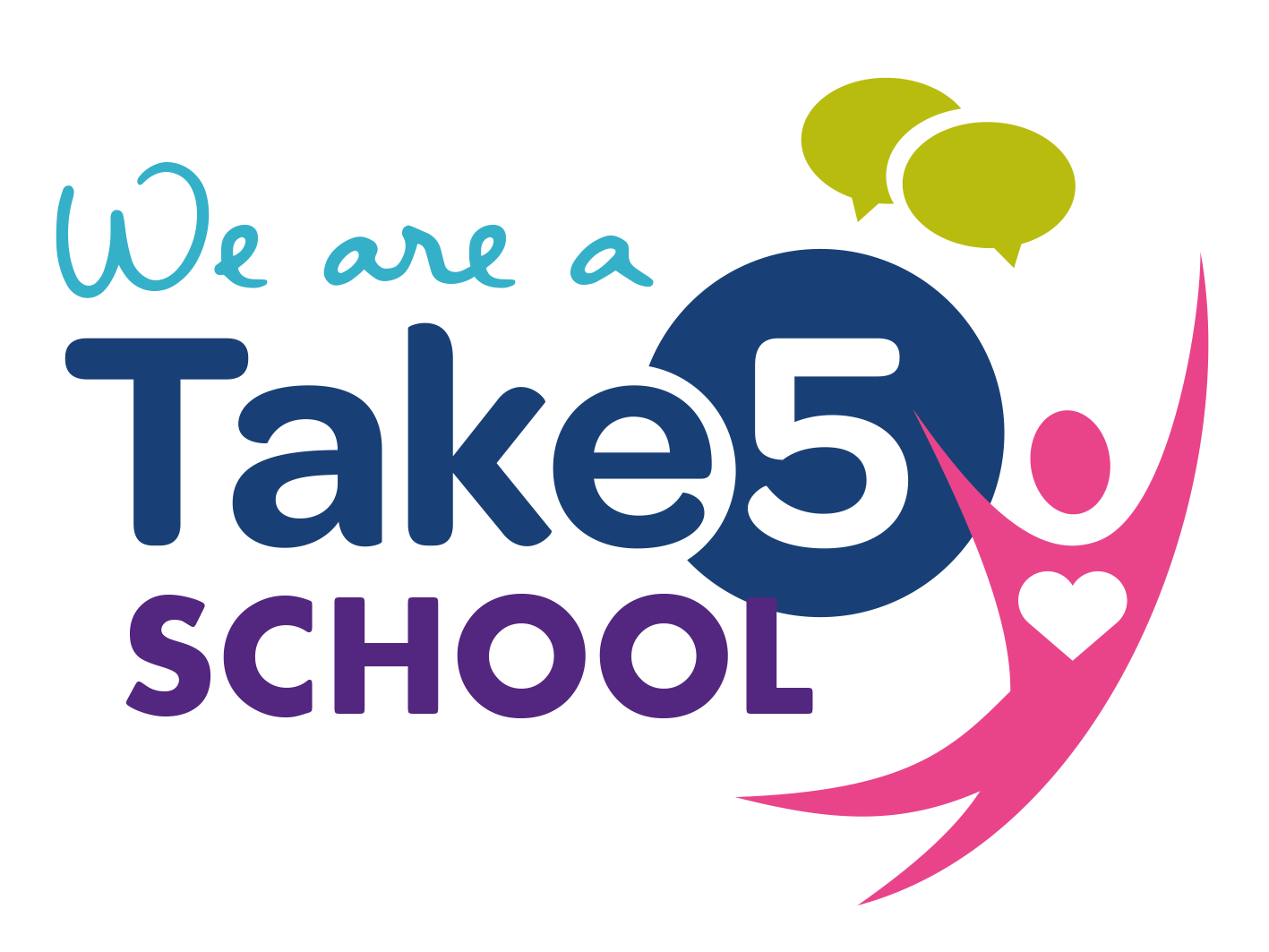Irish
SPECIFIC AIMS OF THE DEPARTMENT
The Irish Department aims to:
-
foster a knowledge and appreciation of the Irish language as an indigenous language;
-
provide an enjoyable environment which allows pupils to develop a suitable level of competence in spoken and written Irish;
-
encourage pupils to develop personal qualities, such as self-confidence, independence and effective communication;
-
develop pupils’ ability to comprehend and present information effectively through the medium of Irish; and
-
enable pupils to develop transferable communication skills that can be used in a series of situations and across various subjects.
OVERVIEW OF KEY STAGE 3 CURRICULUM
At Key Stage 3, Irish is delivered over four lessons per fortnight.
In Year 9, pupils have the opportunity to prepare for and achieve the ‘Cúpla Focal’ badge in recognition of their increasing vocabulary in the language.
In Year 10, each pupil also has the opportunity to achieve the Fáinne and to attend the Gael Linn Junior Quiz. Pupils also have the opportunity to attend Gaeltacht courses each summer.
YEAR 8 CURRICULUM
In Year 8, pupils study the following topics:
- Describing Self
- Classroom
- Shopping
- Counting & Time
- Days, Months, Seasons
- The Weather
- Past Tense
YEAR 9 CURRICULUM
In Year 9, pupils study the following topics:
- Discussing Family Members
- Friends and Heroes
- Personal Pastimes
- Cúpla Focal
- Daily Routine (Present Tense)
- School
- Home
YEAR 10 CURRICULUM
In Year 10, pupils study the following topics:
- Holidays
- Occupations
- Shopping
- Health
- An Fáinne
- The Future Tense
OVERVIEW OF KEY STAGE 4 CURRICULUM
At Key Stage 4, the Irish Department offers Irish at GCSE Level. Pupils follow the CCEA specification. Irish is delivered over six lessons per fortnight.
Pupils will be examined on their knowledge of the language within the following contexts for learning:
- Context 1: identity, lifestyle and culture
- Context 2: local, national, international and global areas of interest
- Context 3: school life, studies and the world of work.
Pupils will be assessed in the four main skill areas of: Speaking, Writing, Listening and Reading.
Unit 1: Listening (AO1)
Weighting: 25%
Marks available: 60 marks (42 for Section A and 18 for Section B)
This unit aims to enable pupils to understand gist, identify main points and detail, recognise points of view, attitudes and emotions, and draw conclusions.
In this unit, pupils are required to engage in a range of listening exercises during the two year course, as well as actively seeking out further opportunities outside of the classroom on the internet, TV, radio or language apps.
This unit is assessed in the form of a Listening exam. Pupils will have 45 minutes to complete the assessment for this unit. Assessment of this unit will take place at the end of Year 12. Pupils’ work in this unit will be externally assessed.
Unit 2: Speaking (AO2)
Weighting: 25%
Marks available: 60 marks
This unit aims to develop pupils’ confidence with the spoken language and to increase their vocabulary in Irish.
In this unit, pupils are required to engage meaningfully with the preparation of the task, practice pronunciation regularly in class and at home, and ideally attend a course in the Gaeltacht during the summer.
This unit is assessed in the form of an oral exam conducted in Year 12, typically around Easter time, with the pupil’s own teacher. Recordings are submitted to CCEA for marking. Pupils will prepare a variety of topics over the course of the 2 years and will be assessed on two of these, one of which CCEA will choose in advance. Additionally, pupils will complete two roleplay tasks which they have 10 minutes to prepare for in advance of the exam.
Unit 3: Reading (AO3)
Weighting: 25%
Marks available: 60 marks
This unit aims to provide pupils with a variety of items of stimulus material in Irish and develop their ability to respond to comprehension activities.
In this unit, pupils are required to engage meaningfully with the written language on a regular basis and, under exam conditions, respond to exercises involving gap filling, vocabulary selection or answering in Irish/English. An element of simple translation is required on this paper also.
This unit is assessed in the form of a written examination. Assessment of this unit will take place at the end of Year 12. Pupils’ work in this unit will be externally assessed.
Unit 4: Writing (AO4)
Weighting: 25%
Marks available: 60 marks
This unit aims to enhance pupils’ written ability in Irish and to increase their awareness of grammar and structures.
In this unit, pupils are required to embrace key grammatical issues and to focus on developing their vocabulary. Pupils are also encouraged to present justified opinions and to write for a purpose or particular audience.
Pupils will have to respond to questions in the target language, complete simple translations from English to Irish and complete a piece of extended writing in response to 5 bullet points from one of three possible essays based on the Contexts for Learning.
This unit is assessed in the form of a written examination. Assessment of this unit will take place at the end of Year 12. Pupils’ work in this unit will be externally assessed.
OVERVIEW OF KEY STAGE 5 CURRICULUM
At Key Stage 5, the Irish Department offers Irish at AS and A2 Level. Pupils follow the CCEA specification. At AS and A2 Level, Irish is delivered over eleven periods per fortnight.
At AS Level, students must successfully complete three modules. A further three modules must be successfully completed at A2 Level.
AS IRISH
At AS Level, students should have the opportunity to understand and explore a range of issues in Irish within the following three contexts:
- Context 1: Relationships
- Context 2: Culture and Lifestyle
Unit 1: Speaking (30%)
This unit aims to empower students to:
- understand, infer meaning and draw conclusions from a variety of spoken sources covering different contexts, registers, styles and genres;
- express information, facts and ideas and justify opinions in spoken Irish;
- understand and apply accurately the grammatical system and a range of structures as detailed in the AS specification; and
- adapt spoken and written language appropriately for different situations and purposes.
In this unit, students are required to complete a 3 minute presentation on a topic of their choosing, answer a selection of questions on this, and then engage in a conversation on a variety of topics such as: Myself, Family, Holidays, Hobbies, Social Media and Gaeltacht.
This unit is assessed in the form of an oral exam. Students will have 11 minutes to complete the assessment for this unit. Assessment of this unit will take place at the end of Year 13. Students’ work in this unit will be externally assessed.
Unit 2: Listening, Reading and Use of Language (40%)
This unit aims to empower students to:
- understand, infer meaning and draw conclusions from a variety of spoken sources covering different contexts, registers, styles and genres;
- adapt spoken and written language appropriately for different situations and purposes;
- understand, infer meaning and draw conclusions from a variety of written texts (including authentic sources) covering different contexts, registers, styles and genres;
- transfer meaning from Irish into English;
- express information, facts and ideas and justify opinions in written Irish; and
- understand and apply accurately the grammatical system and a range of structures as detailed in the AS specification.
In this unit, students are required to complete a selection of comprehension tasks, translate a passage from Irish to English and demonstrate an understanding of key grammatical concepts through short tasks aimed at testing accuracy in the language.
This unit is assessed in the form of a written examination. Students will have 2 hours to complete the assessment for this unit. Assessment of this unit will take place at the end of Year 13. Students’ work in this unit will be externally assessed.
Unit 3: Extended Writing (30%)
This unit aims to empower students to:
- develop knowledge and understanding of aspects of Irish culture and society or an Irish-
speaking country or community;
- express information, facts and ideas in written Irish and justify opinions through the study of
a set film or literary text;
- demonstrate their understanding and knowledge of the work in Irish;
- apply grammatical structures accurately.
This is a written essay response in Irish based on the study of one set work. Each work has two open-ended question options. Students answer one question. Students should demonstrate their knowledge of the work they have studied. Students’ work in this unit will be externally assessed.
The AS qualification makes up 40% of the overall A Level qualification.
A2 IRISH
At A2 Level, students should have the opportunity to understand and explore a range of issues in Irish within the following two contexts:
- Context 4: Young People in Society
- Context 5: Our Place in a Changing World
Unit 4: Speaking (18% of overall A Level)
This unit aims to empower students to:
- understand, infer meaning and draw conclusions from a variety of spoken sources covering different contexts, registers, styles and genres;
- express information, facts and ideas and justify opinions in spoken Irish;
- understand and apply accurately the grammatical system and a range of structures as detailed in the A Level specification; and
- adapt spoken and written language appropriately for different situations and purposes.
In this unit, students are required to complete a 6 minute discussion on a region of an Irish-speaking country or community in Irish and follow this up with a 9 minute conversation on a range of topics including future plans, locality, employment, school, societal issues, environment etc.
This unit is assessed in the form of an oral exam. Students will have 15 minutes to complete the assessment for this unit. Assessment of this unit will take place at the end of Year 14. Students’ work in this unit will be externally assessed.
Unit 5: Listening, Reading & Writing (24% of overall A Level)
This unit aims to empower students to:
- understand, infer meaning and draw conclusions from a variety of spoken sources covering different contexts, registers, styles and genres;
- adapt spoken and written language appropriately for different situations and purposes;
- understand, infer meaning and draw conclusions from a variety of written texts (including authentic sources) covering different contexts, registers, styles and genres;
- transfer meaning from English into Irish;
- develop arguments, analyse, evaluate, compare and contrast in written Irish; and
- understand and apply accurately the grammatical system and a range of structures as detailed in the A Level specification.
In this unit, students are required to complete a selection of gap fill exercises and comprehension tasks, translate a passage from English to Irish and summarise an extend piece of Irish in English, not exceeding 100 words.
This unit is assessed in the form of a written examination. Students will have 2 hours 45 minutes to complete the assessment for this unit. Assessment of this unit will take place at the end of Year 14. Students’ work in this unit will be externally assessed.
Unit 6: Extended Writing (18% of overall A Level)
This is a written essay response in Irish based on one set literary text. Each literary text has two open-ended question options. Students answer one question. Students should be able to demonstrate knowledge of the literary text they have studied and a capacity for critical thinking by using these skills as appropriate:
- developing arguments;
- presenting views, opinions and justifications;
- analysing critically;
- evaluating;
- comparing characters;
- appreciating themes and literary styles.
This unit will be externally assessed.
ADDITIONAL SUBJECT INFORMATION
EXTRA-CURRICULAR PROVISION
The Irish Department contributes extensively to the school’s extra-curricular provision. Extra-curricular activities include:
- Gaelbhratach Commitee
- Club Mhuire
- Gaeltacht Visits
- Céilí Dancing
- Gael Linn- Tráth na gCeist-Quiz
- Gael Linn-Abair-Public Speaking GCSE/AS/A2
- Guest Speakers e.g. Gael Linn, University of Ulster
- Gaeilge 24-Conradh na Gaeilge
- Seó Bóthair-Conradh na Gaeilge
- Career Fair-An Carn
- NICILT Spelling Bee
- Seachtain na Gaeilge
FACILITIES AND RESOURCES
The Irish Department is staffed by language specialists who have spent significant periods of time studying and working in Gaeltacht regions. The department has three classrooms fully equipped with NIAVAC Interactive Smartboards, Dell PCs, iPad’s and Apple Mac computers. Senior school pupils are also supported by a Language Assistant who offers linguistic support to small focused groups.
CAREERS INFORMATION
Students who chose to study Irish at A Level typically fall into one of two categories: those who wish to pursue Irish to degree level and seek employment or those whose interest is such that they enjoy the study of the language and recognise its value as a high end academic subject to assist with entry into University to pursue their course of interest.
To that end, pupils from the Irish Department may continue to pursue the following careers:
- Teaching/ Lecturing
- Translation (EU Opportunities)
- Media
- Sound/Visual Engineering
- Business Management
- Web Design
- Legal Profession
- Cultural Planning
The Irish language is prominent in a global context and students may wish to consider studies/modules in this international context. Some universities offering Irish or Celtic Studies at degree level include:
- Harvard University, America
- University of Wisconsin, America
- Cambridge University, England
- Freiburg University, Germany
- Foreign Studies University, Beijing
SUBJECT MEDIA GALLERY
